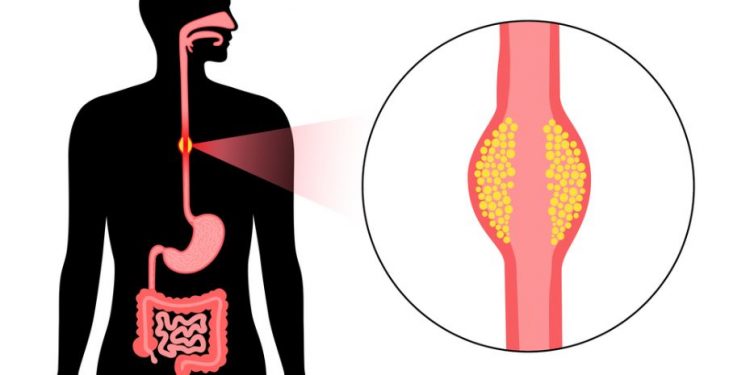The oesophagus (or gullet) is the long tube that carries food from your throat to your stomach. It is behind your windpipe and in front of your diaphragm, and it stretches from the back of your throat to the base of your stomach. This is a key route for the delivery of food and drink to the body, which in turn delivers nutrients needed by the body. Issues affecting the oesophagus can therefore affect eating and digestion, which in turn may cause weight loss and malnutrition.
Oesophageal cancer happens when abnormal cells in the lining of your oesophagus grow and spread out of control. These cells can grow into nearby tissues and organs, or they may spread to other parts of your body, which is why it’s important to visit your GP as soon as you notice any unusual symptoms.
Your GP will refer you to a specialist who may order tests, such as a barium swallow, where you’ll be asked to swallow a liquid that shows up on an X-ray. You might also have an endoscopy, where a flexible tube is used to view the lining of your oesophagus. A sample of tissue can be taken during an endoscopy, and the lining can be tested for changes (biopsy). Your doctor will then decide what treatment is right for you.

Most people with oesophageal cancer don’t have any symptoms until the tumour starts to block passage of food and fluids down the oesophagus. This can lead to difficulty in swallowing (dysphagia) and a dry mouth. The person may also develop a hoarse or dry cough, unexplained loss of weight or a feeling that something is stuck in the throat.
There are 2 main types of oesophageal cancer, depending on where the cancer starts in the lining of your oesophagus. Most oesophageal cancers start in the squamous cell layer, which is a thin sheet of cells that line your oesophagus. These cells can have mutations that lead to them growing more quickly than normal, and these may spread from the squamous cell layer into other parts of the oesophagus and beyond.
There are also cancers that start in glandular cells that make mucus and other fluids in the oesophagus. These can grow into the muscle layer of your oesophagus and spread into surrounding tissues. There are fewer of these cancers, but they can be difficult to treat. Your specialist will explain which cancer is causing your symptoms, and how far it has spread (its stage). They’ll recommend the best treatment for you. This could include surgery to remove the affected part of your oesophagus, chemotherapy or radiotherapy, and/or medication to reduce the symptoms. Palliative care teams can help you cope with any ongoing symptoms or discomfort after your treatment.









